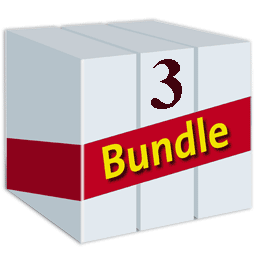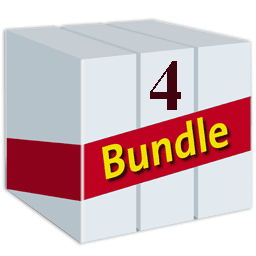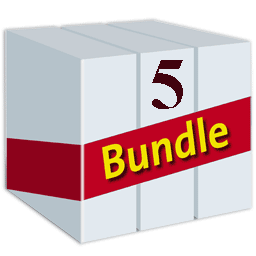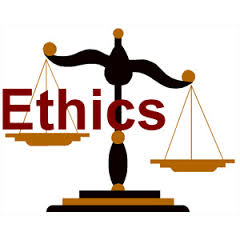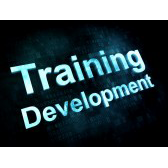- 2023, August 4, DRC, Dispute Resolution Center Conference, Video Download Only
- 2022, August 11-13, DRC, Dispute Resolution Center Conference Recordings
- 2021, August 11-13, DRC, Dispute Resolution Center Conference - Video Download Only
- 2020, August 13-15, DRC, Dispute Resolution Center Conference Recordings - Video Download Only
- 2019, August 15-17, DRC, Dispute Resolution Center Conference Recordings
- 2018, August 9-11, DRC, Dispute Resolution Center Conference Recordings
- 2017, August 10-12, DRC, Dispute Resolution Center Conference Recordings
- 2016, August 11-13, DRC Dispute Resolution Center Conference Recordings
- 2015, July 30-August 1, DRC, Dispute Resolution Center Conference Recordings
- 2014, August 14-16, DRC, Dispute Resolution Center Conference Recordings
- 2013, August 9-10, DRC, Dispute Resolution Center Conference Recordings
- 2012, August 23-25, DRC, Dispute Resolution Center Conference Recordings
- 2011, August 25-27, DRC, Dispute Resolution Center Conference Recordings
- Catch All Category
Product Categories
Filter by price
001 – Bundle One-2016 (8.1 Total CME Credits = 4.5 Ethics, 2.1 Interpersonal Violence and 1.5 Cultural/Diversity Awareness)
$70.00 – $85.00This discounted bundle should satisfy most mediators CME requirements and includes the following presentations:
A2 – (E) Are You Really an Ethical Mediator? – Eric Dunlap (1.5 CME Credits Ethics)
PL3 – (E) Ethics Plenary – George Knox and Susan Marvin (1.5 CME Credits Ethics)
D4 – (E) Ethics and Mediator Advertising – Susan Marvin (1.5 CME Credits Ethics)
PL2 – (IPV) Afternoon Keynote – Robin Hassler Thompson (2.1 CME Credits Interpersonal Violence)
A11 – (CD) The Meaning of "Diversity": Variations of the Same Substance - George Knox (1.5 CME Credits Cultural/Diversity Awareness)
002 – Bundle Two-2016 (10.5 Total CME Credits = 4.5 Ethics, 4.5 Interpersonal Violence and 1.5 Cultural Diversity)
$105.00 – $126.00This discounted bundle should satisfy most Family and Dependency mediators CME requirements and includes the following presentations:
C1 – (IPV) Family Violence: New Perspectives and Approaches - Judith McKay (1.5 CME Credits Interpersonal Violence)
E4 – (IPV) Mediation and Domestic Violence – Robin Hassler Thompson (1.5 CME Credits Interpersonal Violence)
B1 – (IPV) A Demographic Snapshot of Child Abuse Cases - Salvatore Gardino (1.5 CME Credits Interpersonal Violence)
A2 – (E) Are You Really an Ethical Mediator? – Eric Dunlap (1.5 CME Credits Ethics)
A8 – (E) Mediator Ethics: Gonna Make You Sweat - Christopher Shulman (1.5 CME Credits Ethics)
C4 – (E) Mediator Ethics, A Prequel - Kimberly Kosch (1.5 CME Credits Ethics)
A11 – (CD) The Meaning of "Diversity": Variations of the Same Substance - George Knox (1.5 CME Credits Cultural Diversity)
003 – Bundle Three-2016 (7.5 Total CME Credits = 4.5 Ethics and 3.0 Train the Trainer)
$70.00 – $85.00This discounted bundle should satisfy some mediators CME requirements and includes the following presentations:
A2 – (E) Are You Really an Ethical Mediator? – Eric Dunlap (1.5 CME Credits Ethics)
PL3 – (E) Ethics Plenary – George Knox and Susan Marvin (1.5 CME Credits Ethics)
D4 – (E) Ethics and Mediator Advertising – Susan Marvin (1.5 CME Credits Ethics)
B7 – (T) Train the Trainer - Blan L. Teagle (1.5 CME Credits Train the Trainer)
C5 – (T) Train the Trainer - Techniques for Teaching Mediation - Eric Dunlap (1.5 CME Credits Train the Trainer)
004 – Bundle Four-2016 (12.6 Total CME Credits = 4.5 Ethics, 2.1 Interpersonal Violence, 1.5 Cultural Diversity and 4.5 Appellate)
$120.00 – $144.00This discounted bundle should satisfy most Appellate mediators CME requirements and includes the following presentations:
A1 – (A) Appellate Mediation - What Mediators Need to Know about Preservation Issues– Jamie Billotte Moses (1.5 CME Credits Appellate)
D2 – (A) Comparative Appellate Mediation Practices – Nicholas Shannin (1.5 CME Credits Appellate)
E6 – (A) What’s the Appeal of Appellate Mediation?– Susan Dubow and Robin Caral Shaw (1.5 CME Credits Appellate)
A2 – (E) Are You Really an Ethical Mediator? – Eric Dunlap (1.5 CME Credits Ethics)
PL3 – (E) Ethics Plenary – George Knox and Susan Marvin (1.5 CME Credits Ethics)
D4 – (E) Ethics and Mediator Advertising – Susan Marvin (1.5 CME Credits Ethics)
PL2 – (IPV) Afternoon Keynote – Robin Hassler Thompson (2.1 CME Credits Interpersonal Violence)
A11 – (CD) The Meaning of "Diversity": Variations of the Same Substance - George Knox (1.5 CME Credits Cultural Diversity)
005 – Bundle Five-2016 (16.2 Total CME Credits with 4.5 Ethics, 2.1 Interpersonal Violence, 2.5 Cultural/Diversity Awareness and 7.1 General)
$145.00 – $175.00This discounted bundle should satisfy mediators that need the full 16 hrs. and includes the following presentations:
A2 – (E) Are You Really an Ethical Mediator? – Eric Dunlap (1.5 CME Credits Ethics)
PL3 – (E) Ethics Plenary – George Knox and Susan Marvin (1.5 CME Credits Ethics)
D4 – (E) Ethics and Mediator Advertising – Susan Marvin (1.5 CME Credits Ethics)
PL2 – (IPV) Afternoon Keynote – Robin Hassler Thompson (2.1 CME Credits Interpersonal Violence)
A11 – (CD) The Meaning of "Diversity": Variations of the Same Substance - George Knox (1.5 CME Credits Cultural/Diversity Awareness)
PL1 – (G) Opening Plenary & Keynote – Justice Peggy A. Quince and The Honorable Scott Bernstein (2.1 CME including 1.0 CD)
A3 – (G) Body Language Speaks Louder Than Words - Kim Costello and Raleigh “Lee” Greene (1.5 CME Credits General)
A6 – (G) Finding a Road to Resolution - Simple Concepts to Advanced Strategies for Overcoming Barriers to Resolution – J.C. O'Steen and Jason O'Steen (1.5 CME Credits General)
B6 – (G) The Language of Mediation and Conflict Resolution - Howard Marsee (1.5 CME Credits General)
A5 – (G) Facilitation and Partnering Skills: Enhancing the Mediator's Toolbox - Jeanne Maes, Janet Starnes and Robert (Bob) Shearer (1.5 CME Credits General)
006 – Bundle Six-2016 (17.1 Total CME Credits with 4.5 Ethics, 4.5 Appellate, 2.1 Interpersonal Violence, 1.5 Cultural/Diversity Awareness, and 4.5 General)
$160.00 – $193.00This discounted bundle should satisfy appellate mediators that need the full 16 hrs. and includes the following presentations:
A2 – (E) Are You Really an Ethical Mediator? – Eric Dunlap (1.5 CME Credits Ethics)
PL3 – (E) Ethics Plenary – George Knox and Susan Marvin (1.5 CME Credits Ethics)
D4 – (E) Ethics and Mediator Advertising – Susan Marvin (1.5 CME Credits Ethics)
PL2 – (IPV) Afternoon Keynote – Robin Hassler Thompson (2.1 CME Credits Interpersonal Violence)
A11 – (CD) The Meaning of "Diversity": Variations of the Same Substance - George Knox (1.5 CME Credits Cultural/Diversity Awareness)
A1 – (A) Appellate Mediation - What Mediators Need to Know about Preservation Issues– Jamie Billotte Moses (1.5 CME Credits Appellate)
D2 – (A) Comparative Appellate Mediation Practices – Nicholas Shannin (1.5 CME Credits Appellate)
E6 – (A) What’s the Appeal of Appellate Mediation?– Susan Dubow and Robin Caral Shaw (1.5 CME Credits Appellate)
A3 – (G) Body Language Speaks Louder Than Words - Kim Costello and Raleigh “Lee” Greene (1.5 CME Credits General)
A5 – (G) Facilitation and Partnering Skills: Enhancing the Mediator's Toolbox - Jeanne Maes, Janet Starnes and Robert (Bob) Shearer (1.5 CME Credits General)
A6 – (G) Finding a Road to Resolution - Simple Concepts to Advanced Strategies for Overcoming Barriers to Resolution – J.C. O'Steen and Jason O'Steen (1.5 CME Credits General)
A1 – Appellate Mediation – What Mediators Need to Know about Preservation Issues– Jamie Billotte Moses (1.5 CME Credits Appellate)
$15.00 – $18.00This presentation will teach appellate mediators why preservation is important and provide an understanding of the various methods of preserving error.
A10 – Supervised Visitation, Legends and Truths – Mark Roseman (1.5 CME Credits Family)
$15.00 – $18.00A11 – The Meaning of “Diversity”: Variations of the Same Substance – George Knox (1.5 CME Credits Cultural/Diversity Awareness)
$15.00 – $18.00This presentation focuses on learning and cultivating skills that allow practitioners to probe deeper into themselves to appreciate and discover the inner meaning of "diversity" Using techniques of reflection and dispassionate analysis, practitioners can identify and remove hidden obstacles that may affect their relationships with the populations they serve.
A12 – Working with High Conflict Clients- How They Affect Us Professionally and Personally – Terry Mattingly, Dana Nolan and Matthew Smith (1.5 CME Credits Family)
$15.00 – $18.00A2 – Are You Really an Ethical Mediator? – Eric Dunlap (1.5 CME Credits Ethics)
$15.00 – $18.00During this interactive session, attendees will review several factual scenarios, will consider options for handling the scenarios in the most ethical manner, and will rely on MEAC opinions, Mediator Rules, and Florida Statutes for guidance.
A3 – Body Language Speaks Louder Than Words – Kim Costello and Raleigh “Lee” Greene (1.5 CME Credits General)
$15.00 – $18.00Dr. Kim Costello shares her extensive knowledge of body language and how you can use her helpful tips to further your success in this well-thought-out, captivating and interactive workshop. She will share how you can recognize the body language of clients, develop better body language for yourself, and increase your emotional intelligence. You will not want to miss this unique opportunity to learn more about body language and how you can use it to help boost collaboration.
A4 – Diversity in Mediation – Domestic and International Challenges – Ricardo J. Cata (1.5 CME Credits Cultural/Diversity Awareness)
$15.00 – $18.00Diversity in mediation is a reality in Florida. We have multiple cultures, ethnic differences, multiple languages, diverse legal systems and traditions, and cultural obstacles to negotiation. This program will explore these cultural, ethnic and communication issues and suggest best practices for mitigating them.
A5 – Facilitation and Partnering Skills: Enhancing the Mediator’s Toolbox – Jeanne Maes, Janet Starnes and Robert (Bob) Shearer (1.5 CME Credits General)
$15.00 – $18.00This workshop, led by experienced facilitators and mediators, will focus on alternative processes - primarily facilitation of partnering, planning, and public policy development. The presenters will offer strategies and case examples which demonstrate the role mediators can play in leading diverse individuals, communities, and organizations to resolve conflicts, effectively identify and communicate their interests and goals, and achieve consensus in situations outside of a traditional court mediation session.
A6 – Finding a Road to Resolution – Simple Concepts to Advanced Strategies for Overcoming Barriers to Resolution – J.C. O’Steen and Jason O’Steen (1.5 CME Credits General)
$15.00 – $18.00The presentation outlines advanced mediation strategies as well as core mediation fundamentals with the goal of offering ideas that mediators can use to help make their next mediation more successful. The presentation is based on the experiences of two full-time civil mediators who are also father and son. Participants will be given real life examples of techniques and strategies they can use to help overcome barriers to resolution.
A7 – LGBTQ Policyholders After Windsor and Obergefell: Who is Your Insured/Client/Beneficiary? – Carlos Cabrera and Manuel Negron (1.5 CME Credits Cultural/Diversity Awareness)
$15.00 – $18.00This workshop offers an update and analysis on recent changes in same-sex marriage law, nationally and in Florida. With the audience's participation, we will dissect an inventive fact pattern. The fact pattern is designed to show how recent changes in the law have impacted coverage under different types of insurance policies, and how the changes can affect who is a party to a lawsuit, and the potential conflicts of interest presented by the changes.
A8 – Mediator Ethics: Gonna Make You Sweat – Christopher Shulman (1.5 CME Credits Ethics)
$15.00 – $18.00Mediator Ethics is a muscle: the more you exercise it, the stronger it is. We will explore mediator ethics principles through a series of group exercises and facilitated discussion, remembering where the few bright-line "No-Nos" and "Thou-Shalts" are, and discussing the vast area of grey in between.
A9 – Playing at Ethics – Kate Marshman (1.5 CME Credits Ethics)
$15.00 – $18.00Learning can be fun when you are playing on a game show! Participants will answer questions set in the Jeopardy game show format about the ethical rules, statutes and opinions that govern Florida mediators. This discussion will require interactive audience participation and discussion by the presenter about both the right and wrong answers to various ethical questions. Topics discussed include but are not limited to the opening statement, bias, writing the agreement and report, court procedures and practical procedures.
B1 – A Demographic Snapshot of Child Abuse Cases – Salvatore Gardino (1.5 CME Credits Interpersonal Violence)
$15.00 – $18.00B2 – A Pluralist Approach to Restoring the Rookery Bay Estuary: A Qualitative Case Study of Local Water Conflict – Jorge Rice (NON CME)
$15.00 – $18.00This presentation is a qualitative case study related to water conflict in the Rookery Bay Estuary (RBE) Watershed in Southwest Florida and examines conflicts of community members in the private sector, public sector, and non-profit organizations involved with the use of water, and water management. Key findings include opposing interpretations as to the best water management practices, and indications that collaboration helps alleviate conflict among diverse stakeholders.
B3 – Conflict, Culture and Clergy: A Phenomenological Approach Exploring Caribbean Church Leaders in Dispute– Davina Cummings (1.5 CME Credits Cultural/Diversity Awareness)
$15.00 – $18.00Church is an organization where most people expect peaceful relations, but that is often not the case. The conflict approaches of a unique group will be explored: Caribbean church leaders. Fourteen leaders will share their in-depth perspectives of dispute processes and how they have addressed disputes.
B4 – Eldercaring Coordination: Adding Age Diversity into the Family Equation – Linda Fieldstone and the Honorable Michelle Morley (1.5 CME Credits Cultural/Diversity Awareness)
$15.00 – $18.00This interactive workshop will focus on the difference between eldercaring coordination and other dispute resolution processes and the progress of the eight Florida circuit pilot programs. Attendees will learn how to bring a pilot site to their circuits and will have an opportunity to assist current pilot sites and eldercaring coordinators.
B5 – It’s Only Money – How Insurance Companies Settle Claims – Sheryl Goski (1.5 CME Credits County and Circuit)
$15.00 – $18.00This workshop offers an interactive discussion of how insurance claims are settled. From consideration of the players involved to geographic limitations and strategies developed by claimants, it is all on the table.
B6 – The Language of Mediation and Conflict Resolution – Howard Marsee (1.5 CME Credits General)
$15.00 – $18.00Language is an essential tool of conflict resolution. The mediator's management of spoken interaction can promote dispute resolution or drive a subconscious wedge between the parties. Through example and audience participation, this workshop explores the areas of cultural metaphor and discourse analysis - as they relate to conflict resolution. The workshop is designed to increase sensitivity to the subtleties and complexities of spoken interaction and their sometimes unintended effect on conflict resolution.
B7 – Train the Trainer – Blan L. Teagle (1.5 CME Credits Train the Trainer)
$15.00 – $18.00How does teaching adults differ from teaching children? What are the fundamentals of adult learning and how can they be applied effectively in a mediation training venue? Using the work of educational theorist David Kolb, and his experiential learning model employing the Learning Styles inventory, these questions and more will be explored during this interactive Train the Trainer session on the art and science of empowering adult learners through discussion leadership and how that helps to provide education for judgment.
C1 – Family Violence: New Perspectives and Approaches – Judith McKay (1.5 CME Credits Interpersonal Violence)
$15.00 – $18.00C2 – Leveraging the Best in Multiple Intelligence and Appreciative Inquiry Discoveries with Diverse Parties In Mediation – Harold Coleman, Alexia Georgakopoulos and Rebecca Storrow (1.5 CME Credits Cultural/Diversity Awareness)
$15.00 – $18.00In this interactive workshop, we will explore how the most effective mediators build their multiple intelligence quotient. Research shows that the way a mediator views the parties impacts the mediator’s process of mediation. Gardner's theory of multiple intelligences states that experience, culture, and other factors support many different ways to learn and process information, but that the factors are independent of each other, leading to multiple "intelligences." Mediators who possess multiple intelligences can bring added value to the process of mediating diverse parties.
C3 – Mediation and the Combat Veteran – Carol Williams and Richard Williams (1.5 CME Credits General)
$15.00 – $18.00Veterans are returning home with multiple disorders that are interfering with their abilities to function in a "normal" way. This workshop will provide and discuss statistical data on the progress of veterans. Group exercises on multiple disorders will aid in defining the roles a mediator may play in assisting the veteran.
C4 – Mediator Ethics, A Prequel – Kimberly Kosch (1.5 CME Credits Ethics)
$15.00 – $18.00This workshop is designed to provide a structural analysis of the statutes, procedural rules and standards of conduct as they bind (or don’t) to the various forms of mediation conducted with the halls of justice. This workshop will benefit all mediators but especially those who practice across jurisdictions or who practice in and outside of the court system.
C5 – Train the Trainer – Techniques for Teaching Mediation – Eric Dunlap (1.5 CME Credits Train the Trainer)
$15.00 – $18.00The workshop will explore various methods and techniques for teaching mediation certification training courses and continuing mediator education courses.
D1 – A Mediator’s Bedside Manner & A Neutral’s Sacred Oath – Tye Bourdony (1.5 CME Credits General)
$15.00 – $18.00As a mediator, the kind of compassion and empathy we show our clients can mean the difference between agreement, non-agreement and a really good agreement when we have a good bedside manner. If we forget to remain neutral and impartial, even the most amazing bedside manner does not result in a great agreement.
D2 – Comparative Appellate Mediation Practices – Nicholas Shannin (1.5 CME Credits Appellate)
$15.00 – $18.00This workshop will review differences among the approaches to mediation of the five District Courts of Appeal and the successfulness of the change to rule 9.700, Florida Rules of Appellate Procedure, in encouraging the use of mediation for appeals beyond the Fifth DCA. It will also discuss the rule amendments that became effective in 2015. Lastly, a comparison of the Federal Appellate Mediation model with the Florida rule will teach appellate mediators about the very different Federal mediation method.
D4 – Ethics and Mediator Advertising – Susan Marvin (1.5 CME Credits Ethics)
$15.00 – $18.00This interactive workshop will provide information regarding the requirements for mediator advertising in the Florida Rules for Certified and Court-Appointed Mediators and Mediator Ethics Advisory Committee Opinions. Attendees will discuss advertising scenarios in small groups.
D6 – How to Be a More Effective Facilitator in the Mediation Process – Maria C. Gonzalez and Douglas Greenbaum (1.5 CME Credits Cultural/Diversity Awareness)
$15.00 – $18.00This interactive presentation will focus on issues dealing with cultural diversity, religious diversity, appropriate nomenclature, verbal and body language, and self-awareness of what can be perceived as bias. Mediators will learn how to put all participants at ease in the mediation process and help bring down barriers and impediments to a successful mediation.
D7 – Mediating Cultural Differences – Jeanne Maes and Robert (Bob) Shearer (1.5 CME Credits Cultural/Diversity Awareness)
$15.00 – $18.00Dealing effectively with diverse constituencies is a key factor in successfully resolving disputes. The foundation for effectiveness begins with defining “diversity” and then discovering ways to connect with the parties. This is an interactive session that focuses on discovering the pictures in the parties' heads, learning to speak a “universal language,” and identifying ways to help the parties communicate well.
D8 – The Power of a Study Circle in Creating Civil Discourse and Dialogue on College Campuses, PART 1 Deri Ronis (1.5 CME Credits Cultural/Diversity Awareness)
$15.00 – $18.00This groundbreaking seminar has been used at schools and college campuses to create community around many sensitive issues effecting students on all campuses, including online bullying, sexting, and abusive language resulting in suicides and low self esteem. In this session, you will learn the skills to be a trainer and facilitator of the Study Circle model.
D9 – Train The Trainer: Teaching County Court Mediation – Susan Dubow (1.5 CME Credits Train the Trainer)
$15.00 – $18.00Train The Trainer: Teaching County Court Mediation. This workshop will discuss " tried and true" techniques and strategies for effectively teaching County Court Mediation. Although geared toward County Court, many of the ideas, suggestions and strategies will be appropriate for all mediation trainers. This will be an interactive session, whereby trainers can share and learn from each other as well as from the presenter.
E2 – Equal Voices: Stories and Practical Considerations in Supporting Cultural Competence in Mediation Rebecca Storrow, Harold Coleman, Stanley Zamor (1.5 CME Credits Cultural/Diversity Awareness)
$15.00 – $18.00This training will lead participants to consider incorporating the four characteristics of cultural competence in a meaningful and practical way in mediation. According to Diversity Training University International (DTUI) there are four cognitive components of cultural competence: awareness, attitude, knowledge, and skills. This workshop uses examples from experienced multicultural and international mediators and cultural competence assessments to help participants examine their own lenses which, in turn, influence mediation style.
E3 – Improving Communication Practices in Mediation: A Study in Age, Gender, and Ethnicity – Kristen Foltz (1.5 CME Credits Cultural/Diversity Awareness)
$15.00 – $18.00This lively and engaging workshop will address the nature of human communication in the mediation process. An in-depth look into the role of age, gender, culture, and ethnicity will be provided with discussion on the impact of of these factors on an individual's own unique communication style.
E4 – Mediation and Domestic Violence – Robin Hassler Thompson (1.5 CME Credits Interpersonal Violence)
$15.00 – $18.00E5 – The Power of a Study Circle in Creating Civil Discourse and Dialogue on College Campuses, PART 2 Deri Ronis (1.5 CME Credits Cultural/Diversity Awareness)
$15.00 – $18.00This groundbreaking seminar has been used at schools and college campuses to create community around many sensitive issues effecting students on all campuses, including online bullying, sexting, and abusive language resulting in suicides and low self esteem. In this session, you will learn the skills to be a trainer and facilitator of the Study Circle model.
E6 – What’s the Appeal of Appellate Mediation?– Susan Dubow and Robin Caral Shaw (1.5 CME Credits Appellate)
$15.00 – $18.00This session will discuss how the mediator, with the assistance of the FL Rules of Appellate Procedure, engages with the parties and actively raises questions to create doubt and identify the costs and risks of taking the appeal through the court system. The mediator's familiarity with the pleadings and relevant case law, and ability to engage in post-trial reality-testing creates both a livelier and more focused discussion than trial level mediation. This is highly-interactive mediation and it’s very appealing indeed!
PL1 –Opening Plenary & Keynote – Justice Peggy A. Quince and The Honorable Scott Bernstein (2.1 CME Credits General Including 1.0 Cultural/Diversity Awareness)
$15.00 – $18.00The Florida courts are leading the way in striving toward fairness in court operations. The Standing Committee on Fairness and Diversity was established to assist the courts in identifying and eliminating any bias based on race, gender, ethnicity, age, disability, financial status, or any characteristic that is without legal relevance. Our keynote speaker, The Honorable Scott Bernstein, Circuit Judge, Eleventh Judicial Circuit, serves as chair of the committee and will be speaking on the topic of Implicit Bias.
PL2 – Afternoon Keynote – Robin Hassler Thompson (2.1 CME Credits Interpersonal Violence)
$15.00 – $18.00PL3 – Ethics Plenary – George Knox and Susan Marvin (1.5 CME Credits Ethics)
$15.00 – $18.00George Knox, a master educator, is back! In this year’s ethic plenary, Mr. Knox will offer his insights on self-determination and mediator impartially. Acting Chief of ADR Susan Marvin joins the plenary mid-way to engage her co-presenter with real world disciplinary examples. Thought provoking, engaging, interactive.



